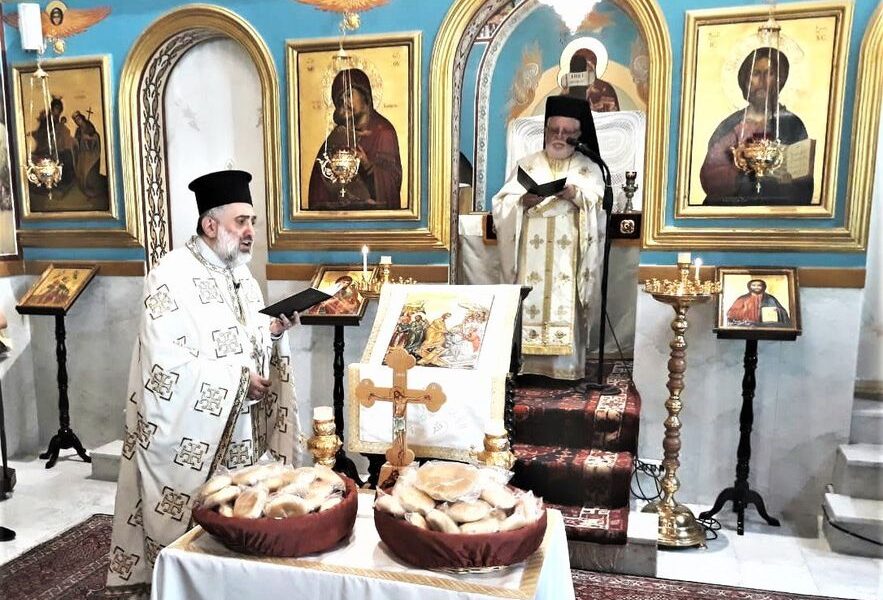The Romaian Cultural Society, a Greek Orthodox Rûm organisation based in Beirut, and its members participated in Divine Liturgy and a Memorial Service held on May 29, 2022 to lament on the Fall of Constantinople in 1453.
It was also in honour of the Lebanese Rûm innovators who contributed to building the state of Greater Lebanon, which the Association recorded in the golden register of the late Greek creators.
The Lebanese Greek Orthodox League president, Dr. Salah Rostom, the Chairman of the Lebanese Orthodox Council Mr. Robert Al-Abyad, and the former Governor of Beirut, Ziad Chebib - زياد شبيب, were in attendance.





The Greek Orthodox minority of the Levant, known as Levantine Greeks or Rûm (in reference to their East Roman/Byzantine heritage).
The Levant region, comprising of Syria, Lebanon, Palestine, Jordan, Israel and Turkey’s Hatay province, is home to millions of Levantine Greeks, most of whom have no recognition from the Greek State as a community.

Although the Levantine Greek community is rooted from Bronze Age, Hellenistic Period and East Roman Era Greek settlements, today they are overwhelmingly Arabic-speaking following forced Arabisation in the 19th and 20th centuries.
Journalist and researcher Alexandros Massavetas explained that at the end of the 19th century, in the context of rivalry between the Constantinople and Moscow Patriarchates, “the Russians managed to penetrate one of the four ancient Patriarchates, that of Antioch, and through their very extensive sabotage operation, to pass its leadership from Greek priests to Arabs who were manipulated by Moscow.”
In speaking to a Greek Parliamentary Committee in November 2021, Rafael Issa, President of the Levantine Greek Association, said:
“Not many in the world are aware of the existence of our community, let alone that we share a common Hellenic and Byzantine ancestry with the people of Greece – once mentioned by one of the most eminent Greek historians of the late 19th century, Pavlos Karolidis.
“From the establishment of Constantinople to the formation of the modern nation-states in Asia Minor and the Levant – We have always been seen as the same people.
“This is a fact that is confirmed in the 1878 ethnographic study of French historian Alexander Synvet, that is until foreign power introduced toxic ideologies to serve their own interests, such as Pan-Arabism – an ideology that became very popular throughout the Levant, as well as competing ideologies like Phoenicianism, Arameanism, and Turanism.
“Although these ideologies took root throughout Syrian, Lebanese, Jordanian, and Palestinian societies, they only affected our language and names.
“The rest has remained Romaiic. As a matter of fact – we are still given Greek names at baptism.”
READ MORE: Greece to Extend border fence by 80 kilometres.


